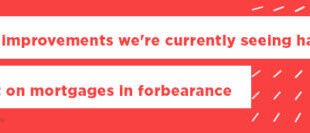
Current Mortgage Rates (Novermber 2020) | ||
Interest rate | ||
30-year fixed-rate mortgage | ||
15-year fixed-rate mortgage | ||
5/1 adjustable-rate mortgage | ||
What is a Short Sale?
A short sale is when a homeowner is behind on their mortgage payments, sells the home for less than the amount they owe.
To be a short sale both of these statements must be true.
- The homeowner is behind on their mortgage payments and cannot bring it current.
- The housing market must have declined to a point where the house is worth less than the remaining balance on the loan.
How a Short Sale Works
The homeowner will initiate a short sale by hiring a real estate agent and talking to their lender about their situation.
Step 1: Talk to a Lender | Start by contacting your lender and real estate agent about selling your home with a short sale. Submit a short sale package to your lender. Provide proof you are no longer capable of making the monthly payment and have no assets. |
Step 2: List the Property | You must use a real estate agent to list the property and execute the real estate contract once a buyer is found. |
Step 3: Lender reviews Contracts | The lender will review the offers on the home and will either decide to not respond, reject the offer, submit a counter offer to the potential buyer, or approve the offer. |
Step 4: The Short Sale Offer | When the lenders offer is presented, the buyer can choose to accept the termed, change the terms, or decline the offer. |
Step 5: Closing | Once the final contract is approved the the property is set for closing where it will be transferred to the buyer’s name. The lender receives the funds from the buyer and releases the original homeowner from the mortgage even though the principal balance was not completely paid off. |
How to Buy a Short Sale
How the process of buying a short sale is different than your typical home.
Step 1: Do your research | Before making an offer on a short sale talk to your realtor and have them look up the loan balance, between that and the comparable properties your real estate agent should give you good advice about how much you should offer. |
Step 2: Understand the lender has final say | While you may think an offer is reasonable, that decision ultimately falls on the lender. Who can accept or reject any offers. |
Step 3: Don’t skip the home inspection | Usually the lender will not repair any issues in the home regardless of what is found during an inspection. However, don’t give in to the temptation of skipping the inspection to speed up the process. If the home inspector finds any major issues it may change your mind on whether or not you want to buy the property. |
Step 4: Work with a reatlor | You will want to hire a real estate agent who has experience dealing with the short sale process and help you figure how much you should offer. |
Get Pre-Approved and Check Mortgage Rates
Short Sale vs. Foreclosure
A short sale and a foreclosure are two separate situations and the buying process between the two is completely different.
Short Sale
A short sale is initiated by a homeowner whose home’s market value is less than the principal balance on their mortgage. The homeowner has interest in doing a short sale as an alternative to facing foreclosure. The homeowners are involved in the process but the decisions will be made entirely by the lender, who can approve or reject offers as they please.
Read More: Tips to Buying a Short Sale
Foreclosure
A foreclosure means that the lender or bank has already taken possession of the property and the homeowner has been evicted. The process is initiated by the lender after the homeowner falls behind on their mortgage payments. While homes involved in a short sale will have the homeowner living in the property, a foreclosure listed for sale will be abandoned.
Lenders sell foreclosed homes in a much faster process than a short sale because they are trying to liquidate the home quickly.
Read More: Tips for Buying a Foreclosed Home
Which is Better?
A short sale is quite a bit more preferable than a foreclosure because the credit implications are significantly less extreme.
With a foreclosure on your credit history, you may have to wait up to seven years before you can buy a home again. With a short sale, the waiting period is just two years.
Before You Buy a Short Sale
Yes. A great deal can be had by buying a short sale property. But just because it’s a short sale there is no guarantee that the deal is a good one. Here are four things you need to know about short sales before you make an offer on one.
4 things you should know before making an offer on a short sale: | |
You may not hear from the lender for months | Lenders are often waiting for the highest offer. You might hear from them within as much of the loan balance as possible. It can be unpredictable, sometimes you will hear from a lender within 1-2 months, other times it will take even longer. |
Don’t skip the home inspection | The lender will not repair anything before closing, but that’s not to say you might as well skip the inspection. If any major issues are found that significantly affect the home’s value you may be able to negotiate a new purchase price, or could avoid a bunch of problems. |
It might not be a great deal | Just because a home is a short sale doesn’t mean you will be able to get a great deal and save thousands off of the market value. The price you usually end up paying for a short sale is within the range of market price because lenders will accept offers for months until they get one that allows them to recoup most of the money they lost. |
Hire a Realtor | A real estate agent that is familiar with the process of short sales will be able to help you through the process. Giving you advice on how much to offer and when to give up and move on. |



